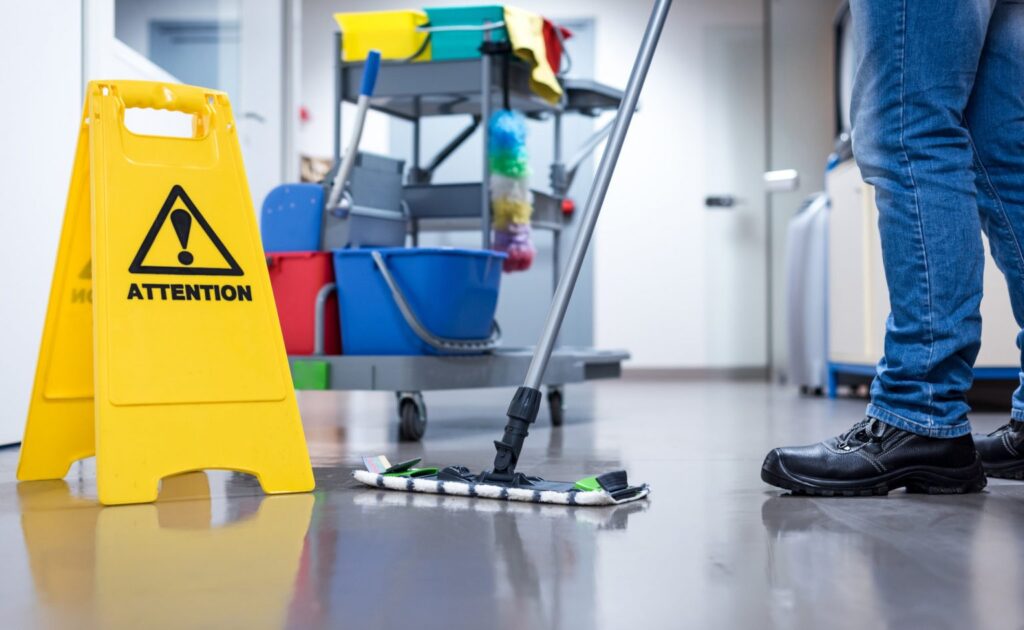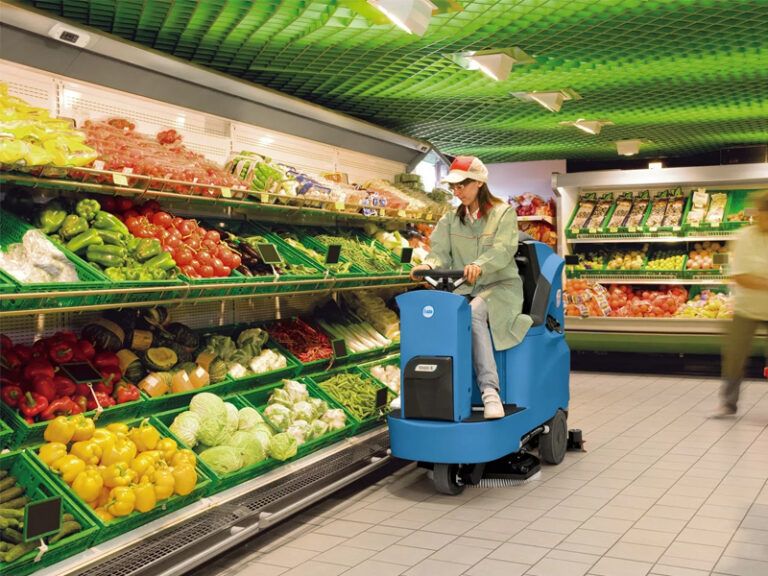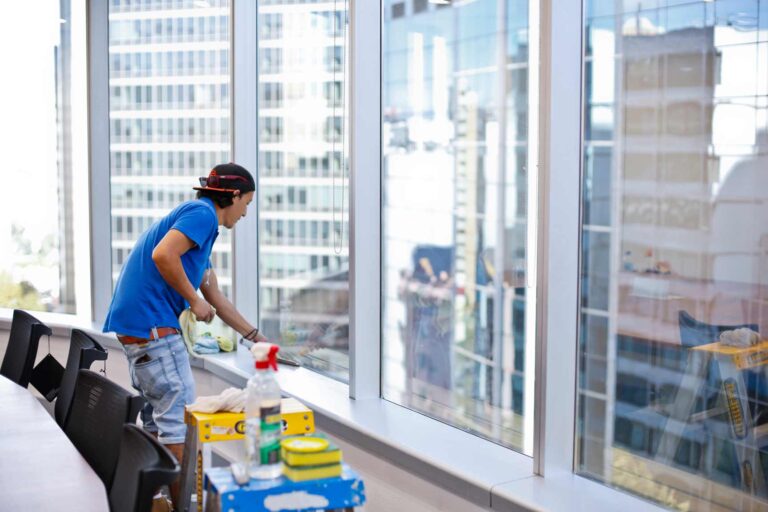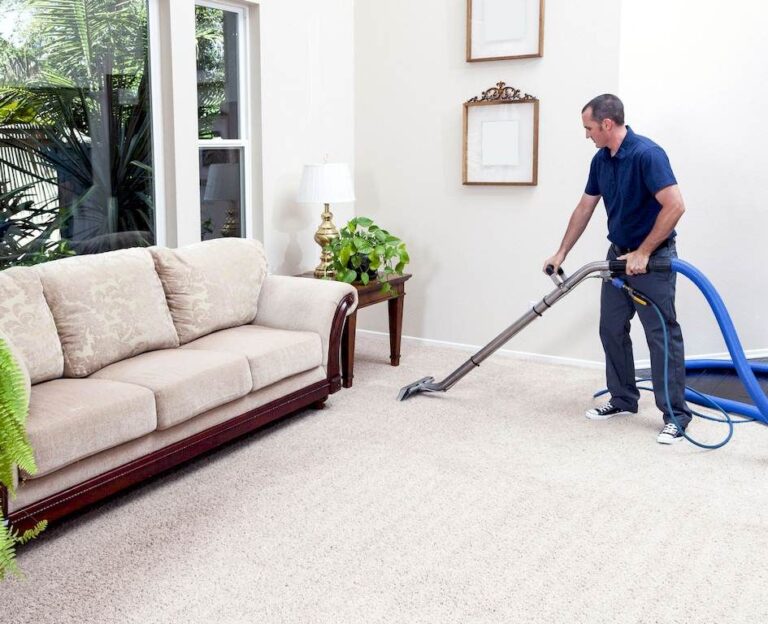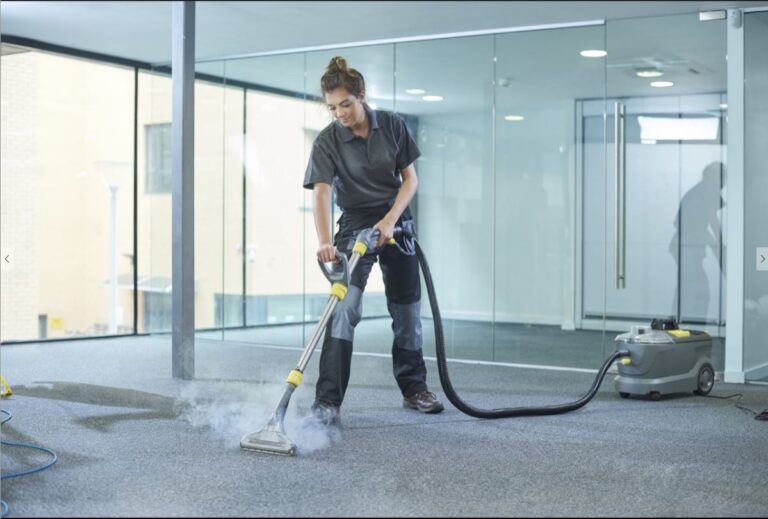Janitors, also known as cleaners, make the office, home, and school environment clean. Like any other job, janitors must care for themselves during cleaning, especially when handling materials such as bleach to clean the area. You must take precautions to avoid harming yourself or others.
There are several risks associated with a cleaning service. The list of janitorial safety tips should cover a wide range of potential hazards, including slippery surfaces, heavy equipment, solid materials, and ergonomic loads. According to the Bureau of Labor Statistics, about 40% of cleaning service mishaps cause serious musculoskeletal injuries. The most common causes of these injuries are tumbling, slipping, falling, and contact with hazardous objects.
In general, offices are less intimidating than other workplaces. Construction sites, medical centers, warehouses, and landfills, among others, can pose an additional risk that you want to identify and notify your staff.
It doesn’t matter what your employee does; any accident can happen to anyone. Occupational safety should be everyone’s job. Lack of time can mean a reduction in employee wages and an increase in employer insurance costs. You can keep your employees motivated and reduce costs by following specific safety precautions.
Beneficial Janitorial Safety Tips
1. Use Personal Protective Equipment.
Perhaps the most critical advice for a Janitor’s safety is to use personal protective equipment (PPE) in any workplace. You may only need gloves when working in an office building, but you may need other equipment, such as masks and hats, when working in medical or construction sites. Personal protective equipment can help you protect yourself from those bacteria for which you’re hired to clean.
2. Follow the standards for bloodborne pathogens.
Not all cleaning methods carry the risk of contact with bodily fluid, but they must meet the standards set by OSHA called the Bloodborne Pathogens Standards. This skill describes the safest way to handle blood, whether it’s to wipe it off the floor or dispose of used injection needles. The standard requires training if the team is working in a facility where blood can be come in contact. Failure to provide or participate in training may result in a referral to OSHA.
3. Wet floor warning
It sounds easy, but forgetting a signal on the slippery ground is dangerous and can lead to serious slip injury or death. Ensure this is on your list of safety tips so your team puts it on every time they mop the floor. Remember that the sign must be prominent and visible even before someone gets on wet ground. Use multiple characters as crucial.
Be sure to maintain the correct appearance when cleaning the floor. Bad posture can irritate the spine and back muscles and cause external problems. This means being careful when lifting or moving furniture.
4. Communicate the risks
In addition to slippery floors, anything considered dangerous should be notified to anyone in the immediate area. Cleaning can cause a variety of hazards, from broken glass to sharp objects to asbestos. Tell everyone around you about the dangers so no one gets hurt.
Workers should wear rubber soles that have a good grip. Check for obstacles, boxes, furniture, etc., who can be on the go before work begins. Never leave cleaners, supplies, or garbage bags in the hallway. Garbage must be cleaned immediately.
5. Practice using heavy electrical appliances.
Cleaning equipment can be dangerous if misused, whether an industrial vacuum cleaner or a floor buffer. Make sure your team understands the safe use of all heavy equipment. Be aware of the machines on the list of safety precautions, as mechanical accidents can cause far more damage.
6. Dilute the chemicals appropriately.
Make sure the equipment minimizes any material you use to clean it properly. This is especially important in places like hospitals, where strong disinfectants are used to clean and wash floors. The steam from the material may be enough to breathe for pain or deterioration. Always encourage your team to read the product labels and learn which ingredients to mix and how.
7. Safe disposal of hazardous waste
If hazardous waste is in your workplace, properly dispose of it to avoid referrals and penalties. Personal protective equipment is essential in such situations. Be sure to wear protective equipment before anyone touches anything. Janitorial Safety Tips 2025.
Most states have standards for the disposal of toxic substances such as body fluids and hazardous substances, so contact the state before complying with OSHA standards.
8. Ensure mechanical reliability.
To be careful when using heavy equipment, check your cleaning equipment regularly to ensure everything is working properly. Remember that OSHA can come to work to inspect your work or equipment anytime, and you can be fined if your machine is not in top condition. A simple solution is to inspect all machines to ensure they are safe before starting work.
9. Avoid falling
This may not happen often, but staff can clean hard-to-reach areas such as lighting and air ducts. To do this, you will probably need to use a ladder or scaffolding Janitorial Safety Tips. Make sure one of your devices is properly installed. Ladders can fall, and scaffolding collapse. Even without screws, this can be a problem. To avoid safety and OSHA eligibility, check all equipment designed to help you reach heights and ensure it is in good condition.
10. Make a safety plan.
Reviewing OSHA equipment standards and hygiene regulations at different times of the year is advisable. Plus, regularly check your safety gear and equipment to ensure you and your team have the right safety gear essential for the environment you are working in. Safety equipment such as rubber gloves and face masks should always be on hand.
The best way to avoid OSHA fines (and keep you and your team safe) is to stay updated with training. Employees must receive training at least once a year, even when updated, so that information remains a priority when employees are on the ground. Training is also encouraged yearly, especially when new rules or regulations are introduced.

